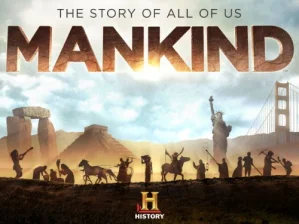Written by Stephanie Siam
Is Earth flat? What happens when we sail past the horizon?
Did dinosaurs really exist? How did they become extinct?
Are there intelligent forms of life on other planets? Have they ever contacted us?
What happens after we die? Has anyone come close to experiencing it for real?
A cursory glance at a general encyclopedia shows humans have never fallen short of curiosity and wonder. Never satisfied with the present and tangible, we strive to answer questions every second of every day — even those that have been answered before!
And, no matter, what the subject of interrogation is at the moment, the one topic that always finds its way back into the spotlight of our inquisitiveness is religion. Believers and non-believers, alike, insist their truth is THE truth and all others must conform to THEIR interpretation.
Before we get too far ahead of ourselves, I’m not trying to drag back the dead horse and beat it all over again. This post is not going to question the truths of Islam — or any other religion, for that matter.
 Photo Credit: history.com
Photo Credit: history.com
There are a great many people who’ve made a significant impact throughout the History of Man: Socrates, Aristotle, the Virgin Mary, Amelia Earheart, Gandhi, MLK, Hitler — hey, not ALL impact is positive.
But I can almost guarantee that no matter which influential character of history you name in a mixed group of people, there are two individuals whose existence is incomparable to the rest: Essa (Jesus) and Muhammad, may God’s peace and blessings be upon both of them.
Their entrances into the History of Man marked greater change and evolution than any others, yet for difference reasons. On the one hand, we have Essa (pbuh), born to an unmarried virgin, whose actual existence is still, to this day, questioned by those determined to denounce his divinity. (Because we all know, if someone ISN’T equated to God, then he must have never existed at all . . .)
 Photo Credit: educationquizzes.com
Photo Credit: educationquizzes.com
On the other hand, we have Muhammad (pbuh), an illiterate orphan whose prophecy is questioned by those whose faith is based on Jesus being the actual son of God.
Let’s be honest, the greatest difference between Christians and Muslims is the definition of Jesus’ identity . . . the rest is sweating the small stuff . . .
To their respective followers, they are considered the greatest representatives of their times and beyond; timeless examples for all mankind.
Perhaps it is a bit ironic that I’m writing this post today, only a couple days before the annual celebration of Jesus’ birth — also known as Christmas. I assure you this was not a scheduled intention.
However, in my mind, I see it as a happy intersection. As a former Christian, and now proudly-Muslim convert, and American-born-and-bred Southerner, Christmas is not a foreign tradition to me.
While my understanding of the holiday has broadened, and my opinion of it overall changed, as I have grown as a human AND Muslim, it’s impossible to deny the positive influence it had on me for many years.
But, this post is not about whether we should or should not participate in Christmas, as former Christians. No, this post is about something that is preached about much more often during this time of year than at any other. And, it just so happens, this topic of sermons worldwide is also another similarity between two of the greatest men to walk the Earth.
Throughout their prophethoods, both Essa and Muhammad (pbuh) had a purpose. They were chosen and molded to share God’s Word and Commandments to all of the people during their respective times.
We know they did not live simultaneously. If they had, they would have no doubt been comrades, partners, associates — disciples or sahaba of each other — determined to work together to convey their most important message. They would not have been working against each other.
Unfortunately, modern day-Christians and Muslims have come to be doing just that. We’re at each others’ throats — insulting, harming, killing, hating each other because of the slightest of differences in belief.
The Qur’an tells us in Surah Yunus, Verse 99:
وَلَوْ شَاءَ رَبُّكَ لَآمَنَ مَن فِي الْأَرْضِ كُلُّهُمْ جَمِيعًا ۚ أَفَأَنتَ تُكْرِهُ النَّاسَ حَتَّىٰ يَكُونُوا مُؤْمِنِينَ
Sahih International
And had your Lord willed, those on earth would have believed – all of them entirely. Then, [O Muhammad], would you compel the people in order that they become believers?
Alas, we are as Allah’s made us. But this doesn’t mean we can’t coexist and work together to make this world what Allah has intended it to be.
And, how do we do this?
 Photo Credit: christiancollages.com
Photo Credit: christiancollages.com
The secret to interfaith harmony can be found in the final sermons (khutbah) of these magnanimous men. Though their teaching methods differed, their messages were undoubtedly the same.
Along with the ultimate commandment that God is One, and He alone should be worshiped, both messengers strove to reclaim the rights and value of those who’d been sidelined and dehumanized: the indigent, the women, the children, the old, the poor.
While there are various interpretations and considerations of which of his sermons is considered the actual “last” (the Sermon on the Mount, the Last Supper, his curse on Israel while hanging on the cross), there is a specific sermon — in Christian tradition — that Essa (pbuh) delivered to his disciples (sahaba). It is called the Farewell Discourse, and its components can be found expounded upon in many locations across the internet. (For brevity, I have linked the Wikipedia discussion.)
There, Essa (pbuh) breaks his message into four main parts, explaining:
- My peace I give unto you
- I am the vine, you the branches
- If the world hates you
- Farewell prayer
And, it is in this Final Prayer, recorded in John 17:26, that we find a most important reminder:
I made known unto them thy name, and will make it known; that the love with which thou loves me may be in them, and I in them.
Here Essa (pbuh) is saying he has done what Allah has asked him to do by conveying His Name, and he asks Allah to imbue his followers with love for one another equal to the love Allah has for His messenger.
The overall theme of the Farewell Discourse is the New Commandment that Essa places on the heads of his followers, which can be found in John 13:34:
A new command I give you: Love one another. As I have loved you, so you must love one another.
As Essa (pbuh) before him, Muhammad (pbuh) also used his final sermon to convey the importance of brotherhood (ummah, non-gender specific), equality and fulfilling responsibility to others.
Among the list of imparted wisdoms include some of the most important summaries in mankind’s history, including the following translated from Al-Jahiz in al-Bayan wa al-Tabyin:
All praise is Allah’s. We praise Him, seek His help, ask His forgiveness, and we repent unto Him. We seek refuge in Allah from the evils of our selves and our bad actions. Whomever Allah guides none can lead astray, and whomever He leads astray has no one to guide him. I testify that there is no god but Allah alone, without any partner, and I testify that Muhammad is his slave and messenger.
In addition, Muhammad (pbuh) also reminded his followers to:
- treat each other fairly
- take care of women
- observe Ramadan
However, perhaps his most assuring and empowering statement is the oft-quoted:
The noblest of you in Allah’s sight is the most God fearing: Arab has no merit over non-Arab other than God fearing-ness.
Al-Jahiz in al-Bayan wa al-Tabyin
In the end, while both sermons focused on specific tenets that had been at the forefront of each messenger’s ministry, it is clear they both presented a similar message to those they were leaving behind:
God alone shall be worshiped; love each other; be kind to all; take care of those you are responsible for; promote justice.
Now it is up to us — Christians and Muslims and all — to unite and reclaim these simple guidelines to restore what has been lost in this growingly-chaotic, terror- and destruction-filled reality:
 Photo Credit: beboundbooks.blogspot.com
Photo Credit: beboundbooks.blogspot.com
Follow us (upper right of the page). Email us (islamwich@yahoo.com). Like our face with your face on Facebook (facebook.com/islamwich). Tumble with us on Tumblr (islamwich.tumblr.com). Pin with us (pinterest.com/islamwich). Follow us on twitter (@islamwich).
Like the post, share it, pin it, comment on it, and/or do whatever social media magic it is that you prefer. Find out more about us in the understandably named “About” page and browse other posts in “Table of Contents”.


As a practicing Christian, I absolutely love everything you said here. I’d never thought about it before because they were separated by history, but I agree that if Jesus and Muhammad (pbuh) had been contemporaneous with each other they would have worked together. Thank you for this insight!
May I have your permission to repost this on my blog, with full credit to you and a link to this post?
LikeLiked by 1 person
Please, by all means reblog. I am so glad you found it insightful. And thank you for your kind words.
LikeLiked by 2 people
If you look at values of modesty and morality, there are so many similarities. We should be working towards a common good of improving this planet we live on – rather than fighting over theological issues. After all, Allah will be the final judge of whether our beliefs – no matter whether we kept to the ‘pure’ doctrines of our faiths, or got distorted…so the work for us here is to try to improve the societies and world we live in.
LikeLiked by 2 people
Absolutely true. But we humans often get stuck on differences. It doesn’t matter what other believe if we can work toward improving life for all.
LikeLiked by 1 person
hmmm.. I am back -some what!- and I have noticed that your last post is dated December 2016 but it has comments from August 2013!! 😐
Creepy some what… I wanted to leave a comment cheering for the post but I was confused with the time machine that hides somewhere there!
LikeLike
Welcome back! Yes, some of the posts toward the end of the year and the beginning of the year are reposts so they will have some old comments. Times have been super busy. MashaAllah.
LikeLiked by 1 person
His words were quite clear and concise and were directed to the entire humanity.One can heed words of wisdom and guidelines from the last sermon (khutbah) of the prophet (SAWS). His sermons emphasized on the following:
Sacredness of a Muslim’s life and property
The importance of propagating this message to all others (A Muslim’s responsibility thus does not end by following the religion)
A reminder that everyone is fully accountable for their deeds and Allah (God) will take every person into account. If everyone heeded to this fact alone, the world would be a much better place today.
“Hurt no one so that no one may hurt you.” These words of the prophet are self explanatory.
The prohibition of dealing with interest (Numerous accounts in Quran and Hadith prohibit taking, giving or being a part of any transaction dealing with interest).
“You will neither inflict nor suffer any inequity.” These words of the prophet are self explanatory.
The awareness of satan and how satan can work to deviate us from the right path and doing evil things.
Rights of women over men and rights of men over women.
Treatment of women with kindness.
Modesty and chastity in women.
The importance of worshiping Allah (saying your five daily prayers (Salah), fasting during the month of Ramadan, giving charity (Zakat) and performing pilgrimage (Hajj).
Equality amongst all (blacks, white, Arabs, non-Arabs, etc.)
The need to establish justice.
Islam is the final divine religion (Last prophet and Last Book).
Let’s do our part in following the prophet’s message and propagating the message to everyone we know.
LikeLiked by 1 person